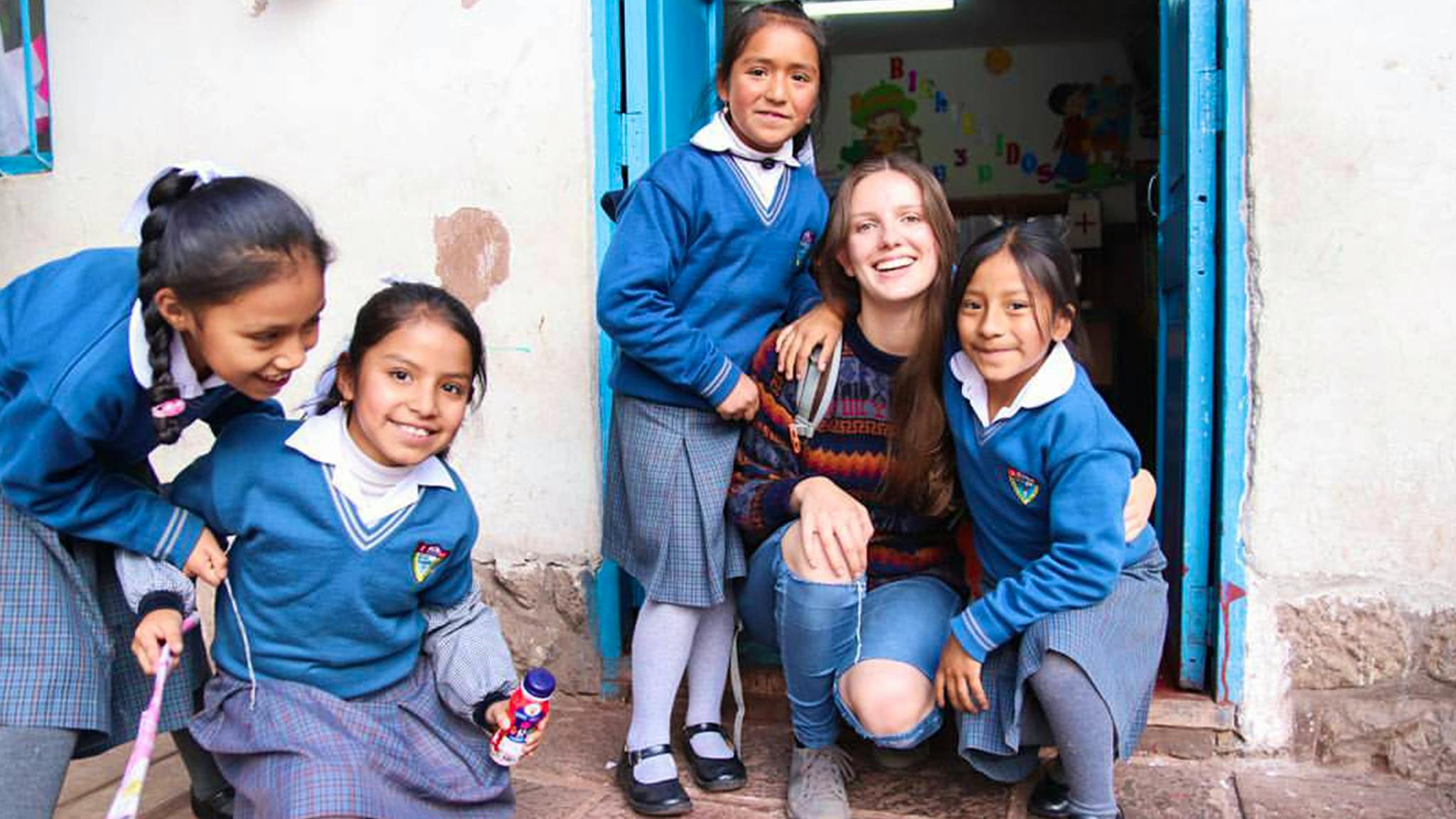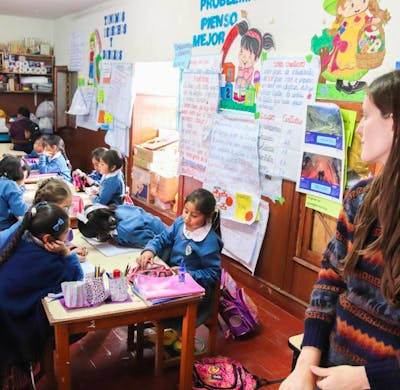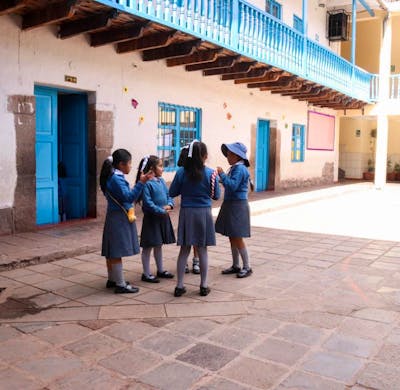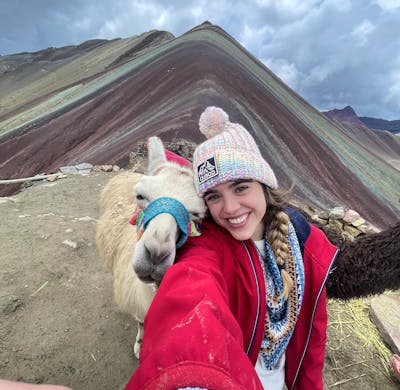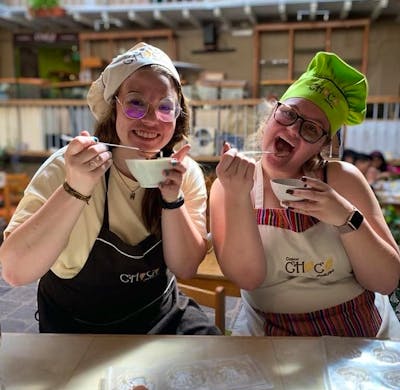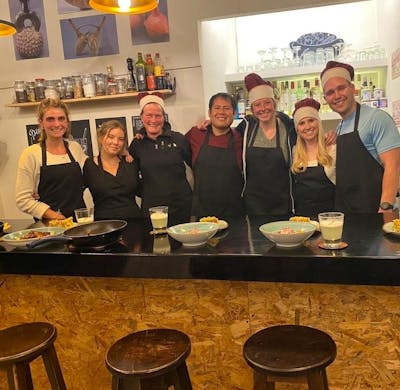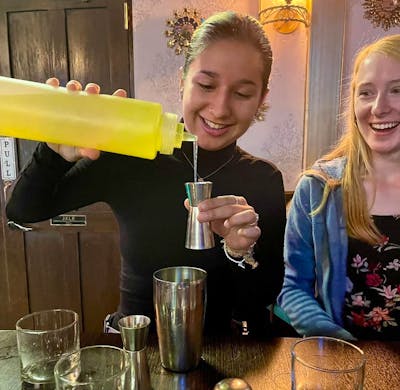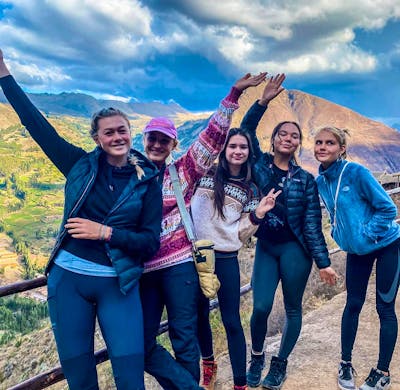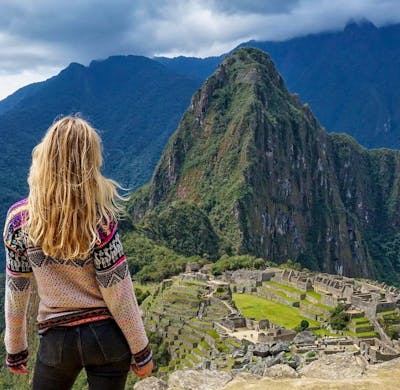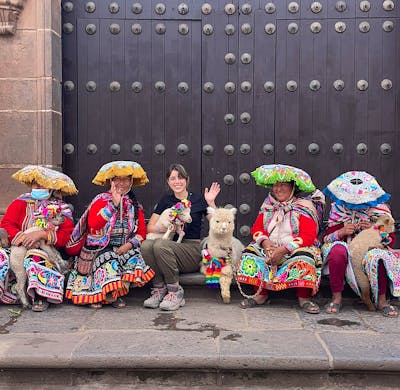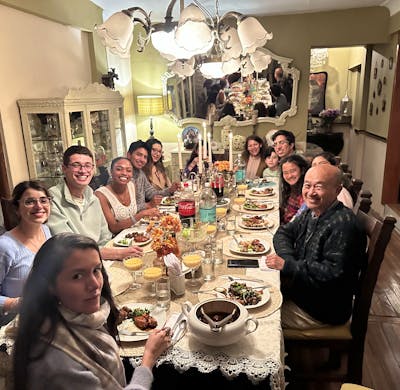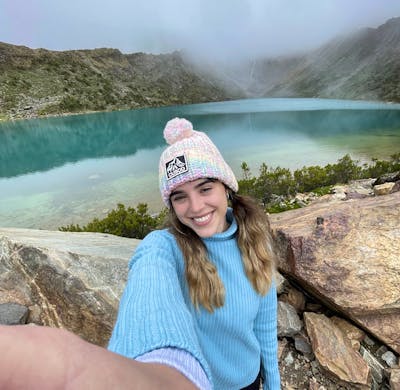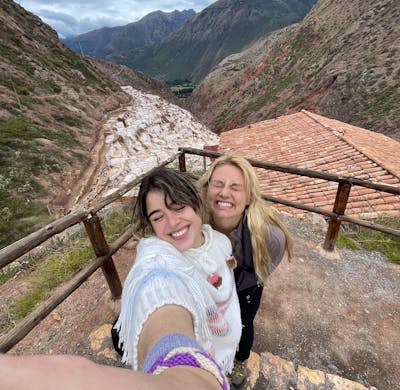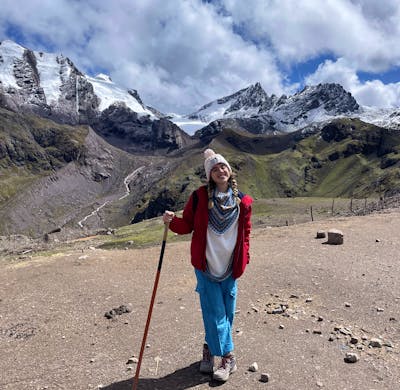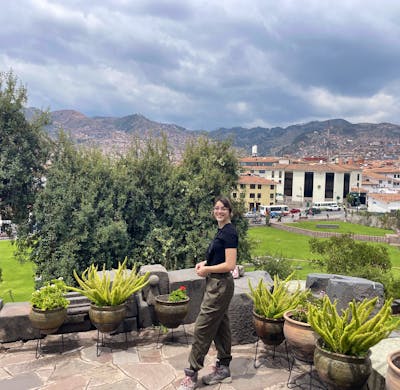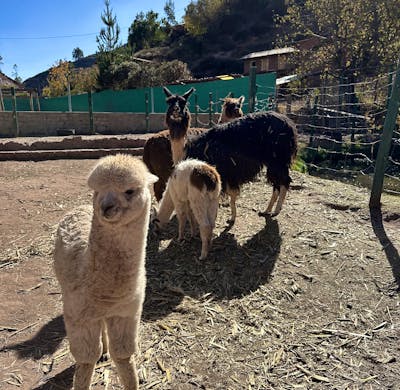2022 at Peru English Teaching Volunteers
from 605€
Excellent 4.8 (866)
(866)
Peru English Teaching Volunteers
2 - 12 weeks
·
Age 18 - 50+
Verified by Volunteer World
Excellent response rate
Excellent 4.8 ·
·
Verified by Volunteer World
·
·
·
Verified by Volunteer World
·

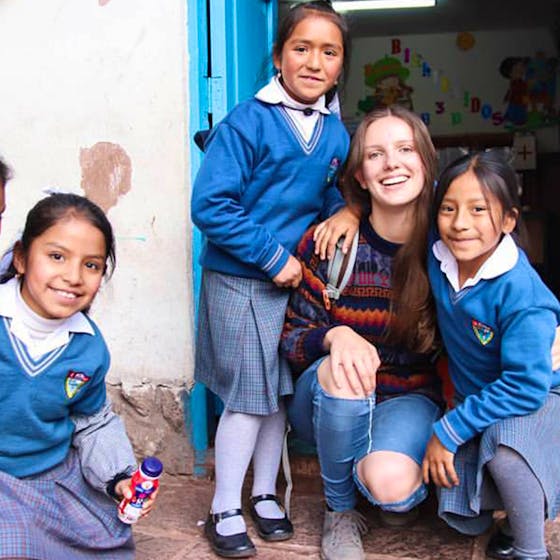
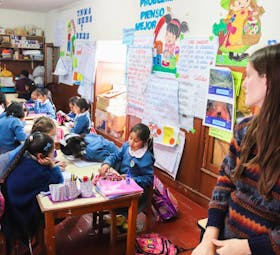
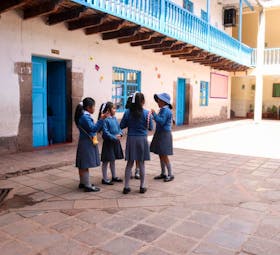
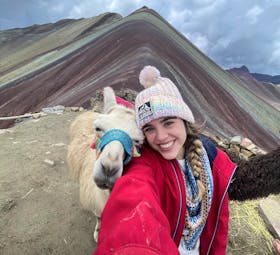
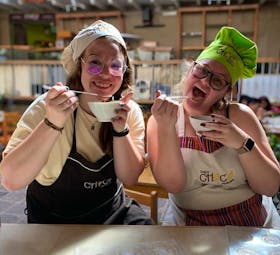
2 - 12 weeks
·
Age 18 - 50+
·
Excellent response rate
Volunteer project with the highest quality.
This project sets unprecedented standards in quality - an unparalleled level of excellence.
Highlights
- 70% of volunteers are 18-22 years old
- Teach in Peru to improve English levels & provide support to local teachers
- Inspire street children leading lessons at the afterschool project in Cusco
- Enjoy the local culture with salsa classes & Peruvian cuisine classes
- Extraordinary travel opportunities to the sacred valley & Machu Picchu
Especially suitable
About the program
Support the efforts in a school to give the children a memorable education with the chance to learn from International Volunteers from all over the world.
As a volunteer teaching English in Peru, you will provide additional support to local teachers across the city of Cusco. Not only this, PMGY’s Peru volunteer programs provide a great foundation to improve your Spanish. The basic education and English learning focus provided in the Peruvian school ...
Typical day
YOUR VOLUNTEER ROLE & TYPICAL TEACHING DAY
Volunteer work in Peru involves supporting the local teachers during the class schedule. This involves helping to prepare classes, tutoring students and interacting with them during class breaks. Volunteers will generally work as teacher assistants, but ...
Free-time activities
PMGY volunteer in Peru participants are based in Cusco, the Incan capital of world located in the Andes Mountains. The small city has so much history! As you move through the narrow streets you can’t help but wander into the hidden markets, gaze upon the local artwork and chuckle at the llamas ...
Requirements
What's Included
What's NOT included?
Details on arrival
This program starts on the 1st & 3rd Sunday of every month
Availability
Jan
Feb
Mar
Apr
May
Jun
Jul
Aug
Sep
Oct
Nov
Dec
Program fees
2 weeks (min. stay)
605€
3 weeks
765€
4 weeks
925€
6 weeks
1,245€
8 weeks
1,566€
10 weeks
1,886€
12 weeks (max. stay)
2,206€
Average fees
242€/week
Meet your organization
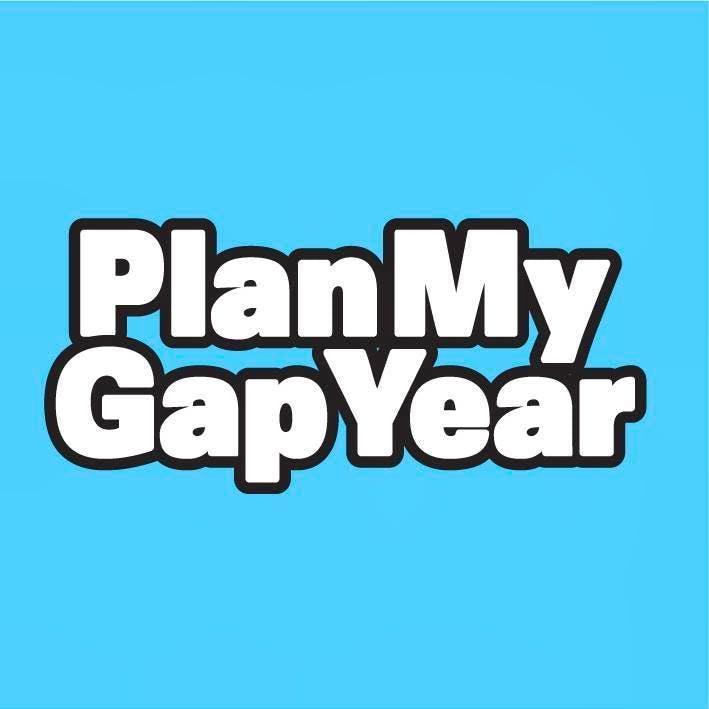
Plan My Gap Year
Excellent 4.8
 (866 reviews)
(866 reviews)
Agency - founded in 2011
Verified by Volunteer World
Excellent response rate
Coordinated by
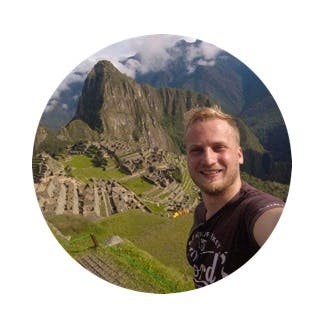
Josh
Spoken languages: English
About the project
Plan My Gap Year is an award-winning international volunteer placement organisation based in the UK.
866 reviews ·  4.8
4.8
Location

You might also be interested in
-
Cusco
Spanish Courses
Global Volunteer Opportunities
Voluntouring
Teach English in Vietnam
Best Volunteer Programs
Mission Trips
Projects Abroad
Adults
Volunteer Trips for College Students
Group Volunteering
Latin America
